

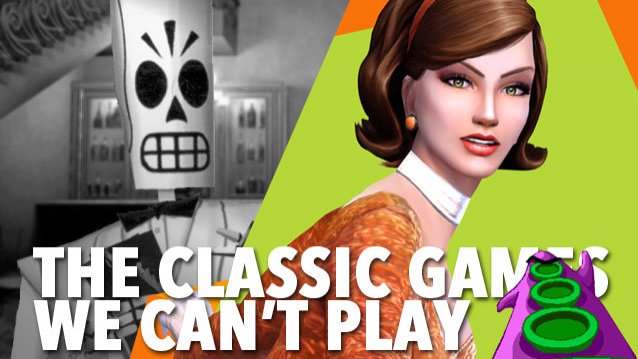
In many ways, we’re in a golden age for classic gaming. With digital downloads and emulations of many of the best games out there, it’s entirely possible to recommend to someone that they play, say, Ultima VII, and with downloading and at the cost of a few dollars, they can be playing it within 15 minutes (also with much less hassle to load up than it’s ever been to play that famously picky-at-release game).
Yet this can lead toward a very skewed vision of game history. Every game that’s not on GOG, Steam, GamersGate, or another download service is significantly less accessible than a game that is. If, for example, one is making an argument about strong female protagonists in video games, it’s easy to cite The Longest Journey’s April Ryan and Beyond Good & Evil’s Jade, since both games are easily available online. On the other hand, Cate Archer from 2000’s No One Lives Forever is slowly fading away, thanks to that game’s lack of online presence.
This is especially frustrating because No One Lives Forever is an astoundingly good game—one of my three favorite first-person shooters of all time. All the conventional pieces, like interface, difficulty, sound effects, are in place, but its 1960s James Bond-like setting and aesthetic give it a level of creativity truly make it shine. I would recommend it to everyone if I could, but I can’t—and have no idea if or when it might become widely available again. It’s not at all the only piece of the gaming history puzzle missing, rendering the whole incomplete. Here are just a few of the biggest gaps in conventional PC gaming alone:
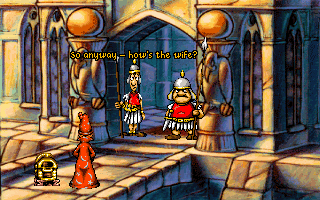 There may be a handful of classic first-person shooters like NOLF missing, but adventure gamers are missing arguably their best ever. LucasArts’ catalog is spotty, which means that many of their classics, like the original Sam & Max, Day Of The Tentacle, and Full Throttle are missing (although The Dig and Secret Of Monkey Island are easy to find on Steam). Most prominently, Grim Fandango, the widely-praised Day Of The Dead-inspired adventure, is nowhere to be found. LucasArts’ chief competitor of the era, Sierra, has most of their major games available on GOG, but the Leisure Suit Larry games and Quest-less titles like Willy Beamish aren’t there. Neither are some of the adventures published outside of the Big Two adventure companies, such as Psygnosis’ Discworld series.
There may be a handful of classic first-person shooters like NOLF missing, but adventure gamers are missing arguably their best ever. LucasArts’ catalog is spotty, which means that many of their classics, like the original Sam & Max, Day Of The Tentacle, and Full Throttle are missing (although The Dig and Secret Of Monkey Island are easy to find on Steam). Most prominently, Grim Fandango, the widely-praised Day Of The Dead-inspired adventure, is nowhere to be found. LucasArts’ chief competitor of the era, Sierra, has most of their major games available on GOG, but the Leisure Suit Larry games and Quest-less titles like Willy Beamish aren’t there. Neither are some of the adventures published outside of the Big Two adventure companies, such as Psygnosis’ Discworld series.
The LucasArts gap also removes one of the very best space simulations of all time, Star Wars: TIE Fighter. This was a game that managed to achieve the impossible at two different levels: it made the cartoonishly evil Galactic Empire of the Star Wars films actually seem sympathetic in terms of narrative; and it turned piloting the “flying eggshell” TIE Fighters from those films into a legitimately great gaming experience. But space sims and flight sims both suffer from their prioritization of the flightstick, a rare piece of hardware these days. Red Baron, one of most accessible and popular sims can be found at GOG, but its World War II cousins Aces Of The Pacific/Aces Over Europe aren’t available. Nor are more complicated flight sims like Falcon 3.0, for years the gold standard of realistic and deep modern aerial combat.
While flight sims aren’t treated well by this metric, they’re still in better shape than classic wargames, which are all but nonexistent on major download sites, despite having been one of the most vibrant genres in gaming before the mid-1990s (niche wargaming publisher Matrix Games does have some classics for download). For whatever reason, most of the major wargame publishers don’t have their catalogs available for direct download. SSG, QQP, Three-Sixty Pacific, TalonSoft, and SSI dominated the genre, yet only a handful of later SSI games can be spotted on GOG.com. Great Battles Of Napoleon, Gary Grigsby’s War In Russia, Harpoon, V For Victory, Conquered Kingdoms, Warlords, and so many others that defined gaming in their day—including the original Panzer General, arguably the most important wargame of all time—can’t be purchased legally.
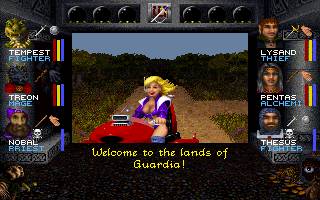 It’s not just faded genres that have huge gaps, though. Role-playing games have been consistently popular in every era of gaming, and a quick glance at GOG’s best-sellers reveals that they’re among the most popular in digital downloads as well. But as important as Fallout, Baldur’s Gate, and Ultima are, they’re not the whole genre. The Wizardry series, in many ways the progenitor of the entire genre of role-playing video games both Japanese and Western, is missing, from the tremendously important first game in 1980, to the marvelous, complex class system of the sixth and seventh installment, to Wizardry 8, a last-gasp effort of menu-based combat (with a creative tactical twist) from 2001. Dungeon Master is almost forgotten, but it’s another critically important game that revolutionized user interface in gaming. And the lack of SSI games doesn’t just affect wargames, but it also means that their Advanced Dungeons & Dragons games, of where there were dozens from 1987-1995, are no longer available.
It’s not just faded genres that have huge gaps, though. Role-playing games have been consistently popular in every era of gaming, and a quick glance at GOG’s best-sellers reveals that they’re among the most popular in digital downloads as well. But as important as Fallout, Baldur’s Gate, and Ultima are, they’re not the whole genre. The Wizardry series, in many ways the progenitor of the entire genre of role-playing video games both Japanese and Western, is missing, from the tremendously important first game in 1980, to the marvelous, complex class system of the sixth and seventh installment, to Wizardry 8, a last-gasp effort of menu-based combat (with a creative tactical twist) from 2001. Dungeon Master is almost forgotten, but it’s another critically important game that revolutionized user interface in gaming. And the lack of SSI games doesn’t just affect wargames, but it also means that their Advanced Dungeons & Dragons games, of where there were dozens from 1987-1995, are no longer available.
There are gaps everywhere. Siege and Myth, two real-time tactics games from different eras, could demonstrate the awesome variety of “RTS” games more than StarCraft wannabes. Front Page Sports Football was a hall of fame-worthy simulation of the sport long before Madden even dreamed of “Franchise Mode.” System Shock and its sequel often top the most-wanted polls for GOG, which is understandable given their status as classic predecessors to the widely-beloved BioShock.
This isn’t just a wishlist of great games (although it’s not not a wishlist). A few months ago, I tried to talk with the person at GOG.com in charge of acquiring games. Due to the legal complications constraints of the negotiations, it was difficult to get a story from the discussion, but I did get the distinct impression that the reason these games aren’t available on sites like GOG has nothing to do with willpower—GOG, Steam, etc, aren’t necessarily to blame here. Yet the fact remains: as fantastic as it is to have access to so many important games, the games we don’t have are just as important. And that gets harder to remember the harder it is to play these classics.


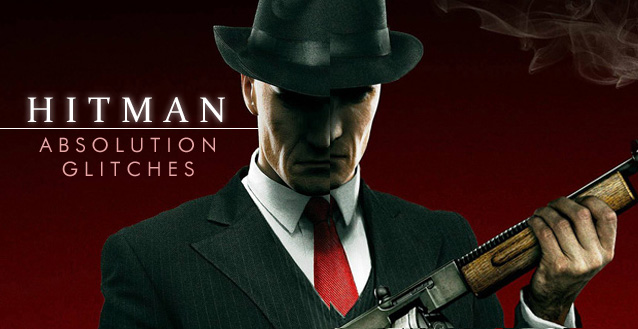

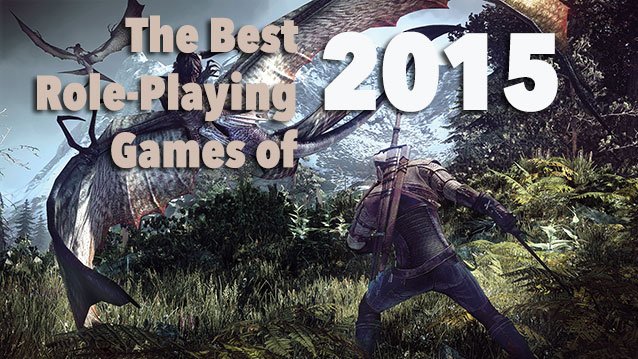 Top 10 Best RPGs of 2015
Top 10 Best RPGs of 2015 Heroes Of The Storm: Super Sonya Build Guide
Heroes Of The Storm: Super Sonya Build Guide Why Streaming Movies Is Bad for You
Why Streaming Movies Is Bad for You The Broken Straight Sword can be the best weapon in Dark Souls 2
The Broken Straight Sword can be the best weapon in Dark Souls 2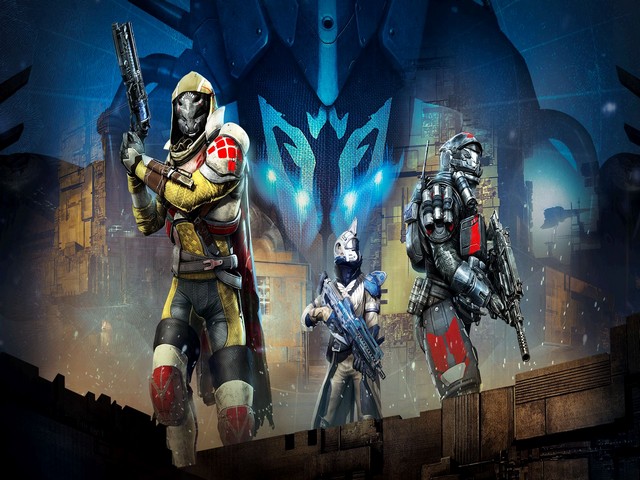 12 New Destiny: House Of Wolves Wanted Bounties Location Discovered
12 New Destiny: House Of Wolves Wanted Bounties Location Discovered